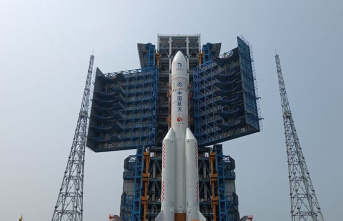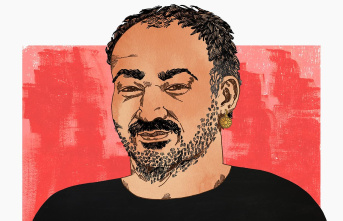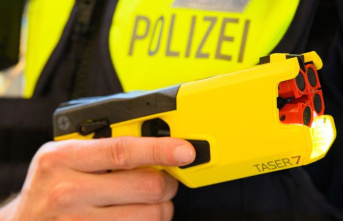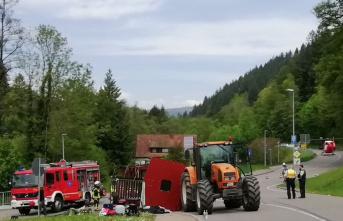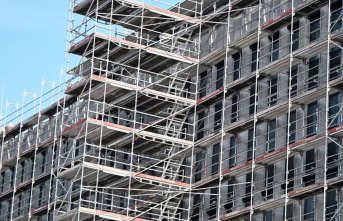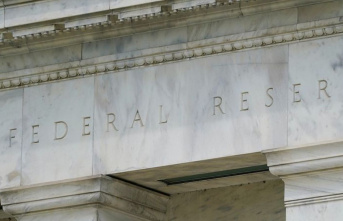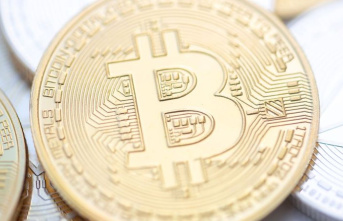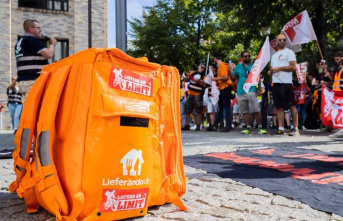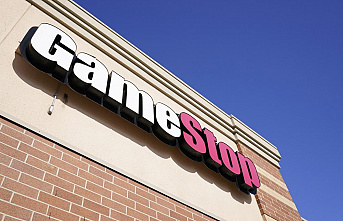Sayyed Hassan Nasrallah disclosed the size of the Shiite group’s militant arm in his first speech since seven people were killed in gunbattles on the streets of Beirut on Thursday — the worst street violence the city has seen in years. The confrontation erupted over a long-running probe into last year’s massive port blast in the city.
It is difficult to verify the 100,000 fighters figure as Hezbollah is largely secretive. If true, it would be larger than the size of Lebanon’s armed forces, estimated at about 85,000.
The speech came at a time of heightened tension in Lebanon over the clashes and the course of the investigation into the Aug. 4, 2020 blast in which over 215 people were killed.
“We have prepared (those fighters) with their diverse weapons to defend our territory, our oil and gas that is being robbed before the eyes of Lebanese, to protect the dignity and sovereignty of our country from any aggression (and) terrorism and not for internal fighting,” Nasrallah said.
In his speech, Nasrallah accused the head of a right-wing Christian party, Samir Geagea, of seeking to ignite civil war in the small country.
Addressing Geagea directly, Nasrallah said: “Don’t miscalculate. Be wise and behave. Learn a lesson from all your wars and all our wars.”
Geagea’s office declined to immediately comment late Monday.
At the end of the country’s 15-year civil war in 1990, Hezbollah was the only group to retain its weapons. It has fought several rounds of war with Israel and took credit for Israel’s troop withdrawal from the country’s south in 2000. Hezbollah has also sent its fighters to support Syria’s armed forces in that country’s decade-long civil war.
Hezbollah and its allies have been highly critical of Judge Tarek Bitar, who is in charge of the port blast investigation, accusing him of being selective and going after some officials and not others while seeking to politicize the probe. They asked that he be removed.
The clashes Thursday came as officials from Hezbollah have suggested the judge’s investigation is leaning toward holding them responsible for the port blast.
Bitar has been criticized by other political groups, too, after he summoned senior officials as part of the investigation, including former ministers and a former prime minister, and charged them with intentional negligence that led to the deaths of over 215 people.
The judge has not publicly commented or responded to the criticism.
Thursday’s clashes saw gunmen battling each other for several hours with automatic rifles and rocket-propelled grenades in the streets of Beirut. It was the most violent confrontation in the city in years, echoing the nation’s darkest era of the 1975-90 civil war.
Nasrallah accused Geagea of “manufacturing” Thursday’s clashes in the Tayuneh area of the city and described him as a criminal and a killer.
“The real program for the Lebanese Forces is civil war,” Nasrallah said. “The biggest threat to the social peace in Lebanon is the Lebanese Forces.”
Nasrallah accused Geagea and his party of seeking to scare Lebanon’s Christians over Hezbollah’s intentions. He said that’s mostly to serve foreign countries that have also made the Shiite group an enemy, including the United States, Israel and some Gulf states.
Geagea is a close ally of Saudi Arabia, which is critical of Iran-backed Hezbollah.
Geagea led the Lebanese Forces Christian militia during the 1975-90 civil war and spent more than a decade in prison. He was released after an amnesty following Syria’s withdrawal from Lebanon in 2005. The anti-Syria Geagea now leads the Lebanese Forces political party.
Nasrallah said his group and its ally, the Amal movement, expect results in an investigation into how the violence broke out Thursday. He suggested that if the army opened fire at protesters from the two Shiite groups, it should be held accountable.
It wasn’t clear from Nasrallah’s speech if his group and Amal are ending their call for the removal of the judge — a move considered by many as interference in judicial affairs.
The newly installed government has come to a standstill after opposition from Hezbollah- and Amal-allied ministers over government inaction against the judge. The crisis is the latest to beset the small nation of 6 million, already struggling with one of the worst financial crises in the world in the last 150 years.
Hezbollah leader declares his group has 100,000 fighters
Lebanon’s Hezbollah leader declared for the first time on Monday that his powerful militant group has 100,000 trained fighters. His speech appeared to be meant as a deterrent to domestic foes following the nation’s worst internal violence in years.
Sayyed Hassan Nasrallah disclosed the size of the Shiite group’s militant arm in his first speech since seven people were killed in gunbattles on the streets of Beirut on Thursday — the worst street violence the city has seen in years. The confrontation erupted over a long-running probe into last year’s massive port blast in the city.
It is difficult to verify the 100,000 fighters figure as Hezbollah is largely secretive. If true, it would be larger than the size of Lebanon’s armed forces, estimated at about 85,000.
The speech came at a time of heightened tension in Lebanon over the clashes and the course of the investigation into the Aug. 4, 2020 blast in which over 215 people were killed.
“We have prepared (those fighters) with their diverse weapons to defend our territory, our oil and gas that is being robbed before the eyes of Lebanese, to protect the dignity and sovereignty of our country from any aggression (and) terrorism and not for internal fighting,” Nasrallah said.
In his speech, Nasrallah accused the head of a right-wing Christian party, Samir Geagea, of seeking to ignite civil war in the small country.
Addressing Geagea directly, Nasrallah said: “Don’t miscalculate. Be wise and behave. Learn a lesson from all your wars and all our wars.”
Geagea’s office declined to immediately comment late Monday.
At the end of the country’s 15-year civil war in 1990, Hezbollah was the only group to retain its weapons. It has fought several rounds of war with Israel and took credit for Israel’s troop withdrawal from the country’s south in 2000. Hezbollah has also sent its fighters to support Syria’s armed forces in that country’s decade-long civil war.
Hezbollah and its allies have been highly critical of Judge Tarek Bitar, who is in charge of the port blast investigation, accusing him of being selective and going after some officials and not others while seeking to politicize the probe. They asked that he be removed.
The clashes Thursday came as officials from Hezbollah have suggested the judge’s investigation is leaning toward holding them responsible for the port blast.
Bitar has been criticized by other political groups, too, after he summoned senior officials as part of the investigation, including former ministers and a former prime minister, and charged them with intentional negligence that led to the deaths of over 215 people.
The judge has not publicly commented or responded to the criticism.
Thursday’s clashes saw gunmen battling each other for several hours with automatic rifles and rocket-propelled grenades in the streets of Beirut. It was the most violent confrontation in the city in years, echoing the nation’s darkest era of the 1975-90 civil war.
Nasrallah accused Geagea of “manufacturing” Thursday’s clashes in the Tayuneh area of the city and described him as a criminal and a killer.
“The real program for the Lebanese Forces is civil war,” Nasrallah said. “The biggest threat to the social peace in Lebanon is the Lebanese Forces.”
Nasrallah accused Geagea and his party of seeking to scare Lebanon’s Christians over Hezbollah’s intentions. He said that’s mostly to serve foreign countries that have also made the Shiite group an enemy, including the United States, Israel and some Gulf states.
Geagea is a close ally of Saudi Arabia, which is critical of Iran-backed Hezbollah.
Geagea led the Lebanese Forces Christian militia during the 1975-90 civil war and spent more than a decade in prison. He was released after an amnesty following Syria’s withdrawal from Lebanon in 2005. The anti-Syria Geagea now leads the Lebanese Forces political party.
Nasrallah said his group and its ally, the Amal movement, expect results in an investigation into how the violence broke out Thursday. He suggested that if the army opened fire at protesters from the two Shiite groups, it should be held accountable.
It wasn’t clear from Nasrallah’s speech if his group and Amal are ending their call for the removal of the judge — a move considered by many as interference in judicial affairs.
The newly installed government has come to a standstill after opposition from Hezbollah- and Amal-allied ministers over government inaction against the judge. The crisis is the latest to beset the small nation of 6 million, already struggling with one of the worst financial crises in the world in the last 150 years.
Hezbollah leader declares his group has 100,000 fighters
Lebanon’s Hezbollah leader declared for the first time on Monday that his powerful militant group has 100,000 trained fighters. His speech appeared to be meant as a deterrent to domestic foes following the nation’s worst internal violence in years.
Sayyed Hassan Nasrallah disclosed the size of the Shiite group’s militant arm in his first speech since seven people were killed in gunbattles on the streets of Beirut on Thursday — the worst street violence the city has seen in years. The confrontation erupted over a long-running probe into last year’s massive port blast in the city.
It is difficult to verify the 100,000 fighters figure as Hezbollah is largely secretive. If true, it would be larger than the size of Lebanon’s armed forces, estimated at about 85,000.
The speech came at a time of heightened tension in Lebanon over the clashes and the course of the investigation into the Aug. 4, 2020 blast in which over 215 people were killed.
“We have prepared (those fighters) with their diverse weapons to defend our territory, our oil and gas that is being robbed before the eyes of Lebanese, to protect the dignity and sovereignty of our country from any aggression (and) terrorism and not for internal fighting,” Nasrallah said.
In his speech, Nasrallah accused the head of a right-wing Christian party, Samir Geagea, of seeking to ignite civil war in the small country.
Addressing Geagea directly, Nasrallah said: “Don’t miscalculate. Be wise and behave. Learn a lesson from all your wars and all our wars.”
Geagea’s office declined to immediately comment late Monday.
At the end of the country’s 15-year civil war in 1990, Hezbollah was the only group to retain its weapons. It has fought several rounds of war with Israel and took credit for Israel’s troop withdrawal from the country’s south in 2000. Hezbollah has also sent its fighters to support Syria’s armed forces in that country’s decade-long civil war.
Hezbollah and its allies have been highly critical of Judge Tarek Bitar, who is in charge of the port blast investigation, accusing him of being selective and going after some officials and not others while seeking to politicize the probe. They asked that he be removed.
The clashes Thursday came as officials from Hezbollah have suggested the judge’s investigation is leaning toward holding them responsible for the port blast.
Bitar has been criticized by other political groups, too, after he summoned senior officials as part of the investigation, including former ministers and a former prime minister, and charged them with intentional negligence that led to the deaths of over 215 people.
The judge has not publicly commented or responded to the criticism.
Thursday’s clashes saw gunmen battling each other for several hours with automatic rifles and rocket-propelled grenades in the streets of Beirut. It was the most violent confrontation in the city in years, echoing the nation’s darkest era of the 1975-90 civil war.
Nasrallah accused Geagea of “manufacturing” Thursday’s clashes in the Tayuneh area of the city and described him as a criminal and a killer.
“The real program for the Lebanese Forces is civil war,” Nasrallah said. “The biggest threat to the social peace in Lebanon is the Lebanese Forces.”
Nasrallah accused Geagea and his party of seeking to scare Lebanon’s Christians over Hezbollah’s intentions. He said that’s mostly to serve foreign countries that have also made the Shiite group an enemy, including the United States, Israel and some Gulf states.
Geagea is a close ally of Saudi Arabia, which is critical of Iran-backed Hezbollah.
Geagea led the Lebanese Forces Christian militia during the 1975-90 civil war and spent more than a decade in prison. He was released after an amnesty following Syria’s withdrawal from Lebanon in 2005. The anti-Syria Geagea now leads the Lebanese Forces political party.
Nasrallah said his group and its ally, the Amal movement, expect results in an investigation into how the violence broke out Thursday. He suggested that if the army opened fire at protesters from the two Shiite groups, it should be held accountable.
It wasn’t clear from Nasrallah’s speech if his group and Amal are ending their call for the removal of the judge — a move considered by many as interference in judicial affairs.
The newly installed government has come to a standstill after opposition from Hezbollah- and Amal-allied ministers over government inaction against the judge. The crisis is the latest to beset the small nation of 6 million, already struggling with one of the worst financial crises in the world in the last 150 years.
On Monday, the leader of Hezbollah in Lebanon declared for the first times that his militant group had 100,000 fighters. After the nation's worst domestic violence in many years, his speech seemed to have been intended to deter domestic foes.
In his first speech since the seven victims of gunbattles in Beirut on Thursday, Sayyed Hassan Nasrallah revealed the size of the Shiite militant arm. This was the worst street violence that the city has witnessed in many years. The long-running investigation into the massive port explosion in Beirut last year that sparked the confrontation was at the heart of the conflict.
Because Hezbollah is so secretive, it is hard to verify that 100,000 fighters are actually there. It would likely be more than the estimated 85,000 size of Lebanon's armed force.
This speech was made at a time when tensions were high in Lebanon due to clashes and the progress of the investigation into Aug. 4, 2020 explosion in which more than 215 people died.
Nasrallah stated that "those fighters" were prepared with various weapons to defend our territory and our oil and gas, which is being robbed in front of Lebanese's eyes, to protect the dignity of our country and its sovereignty from any aggression and terrorism, and not for internal fighting.
Nasrallah, the head of a right wing Christian party, Samirgeagea, was accused of trying to incite civil war in the small nation.
Addressing Geagea directly, Nasrallah said: "Don't miscalculate. Be wise and act. Take a lesson from all of your wars, and all of our wars.
Geagea's office did not respond to our request for comment on Monday night.
Hezbollah, the last group to keep its weapons after the country's 15 year civil war ended in 1990. It has been involved in several wars with Israel and was responsible for Israel's 2000 troop withdrawal from its south. Hezbollah also sent fighters to Syria to aid its armed forces during the country's decade-long civil conflict.
Hezbollah, along with its allies, have been harshly critical of Judge Tarek bitar, who is responsible for the investigation into the port blast. They accuse him of being selective, going after certain officials while trying to politicize it. They demanded that he be fired.
Officials from Hezbollah suggested that the judge's investigation was pointing towards them being held responsible for the blast at the port.
Other political groups have also criticised Bitar after he summoned high-ranking officials to assist in the investigation. These included former ministers and a former prime Minister. They were charged with intentional negligence which led to the deaths over 215 persons.
The judge has not responded publicly to the criticism.
Thursday's clashes saw gunmen fighting each other in Beirut with rocket-propelled and automatic rifles for hours. This was the deadliest confrontation in Beirut in years and echoes the darkest days of the nation's civil war between 1975-1990.
Geagea was accused by Nasrallah of "manufacturing Thursday's clashes at the Tayuneh region of the city" and was described as a criminal, and a murderer.
Nasrallah stated that civil war is the real program of the Lebanese Forces. The Lebanese Forces are the biggest threat to social peace in Lebanon.
Geagea and his party were accused by Nasrallah of trying to intimidate Lebanon's Christians in order to stop Hezbollah from achieving its goals. He claimed that this was mostly done to serve foreign countries, which have made the Shiite group an adversary, such as the United States and Israel, along with some Gulf states.
Geagea is close to Saudi Arabia and is critical of Iran-backed Hezbollah.
Geagea was the leader of the Lebanese Forces Christian Militia during the civil war between 1975 and 1990. He spent more than a decade behind bars. After Syria's withdrawal in 2005, Geagea was freed. Lebanese Forces is now led by the anti-Syria Geagea.
Nasrallah stated that his group and its ally the Amal movement expect results from an investigation into the circumstances of Thursday's violence. He suggested that the army should be held responsible if it opened fire on protesters belonging to the two Shiite groups.
In Nasrallah's speech, it wasn't clear if Amal's group and Amal were ending their call to remove the judge. Many consider this interference in judicial affairs.
After opposition from Amal- and Hezbollah-allied ministers, the government that was recently installed has been forced to stop. This is due to government inaction against the judge. This crisis is the latest in a series of financial problems that have beset the nation of 6million, which already faces one of the most severe financial crises in 150 years.


